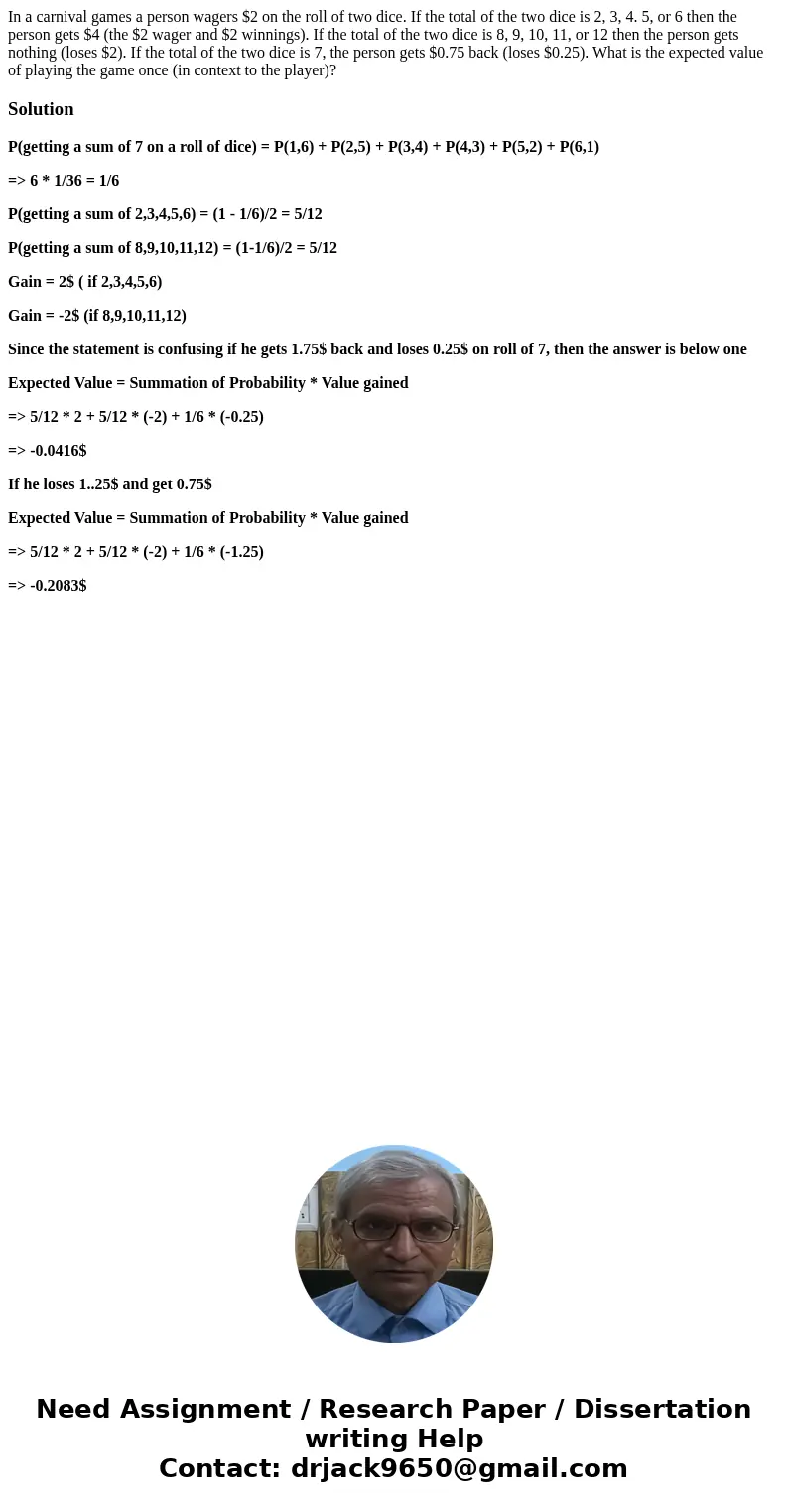In a carnival games a person wagers 2 on the roll of two dic
In a carnival games a person wagers $2 on the roll of two dice. If the total of the two dice is 2, 3, 4. 5, or 6 then the person gets $4 (the $2 wager and $2 winnings). If the total of the two dice is 8, 9, 10, 11, or 12 then the person gets nothing (loses $2). If the total of the two dice is 7, the person gets $0.75 back (loses $0.25). What is the expected value of playing the game once (in context to the player)? 
Solution
P(getting a sum of 7 on a roll of dice) = P(1,6) + P(2,5) + P(3,4) + P(4,3) + P(5,2) + P(6,1)
=> 6 * 1/36 = 1/6
P(getting a sum of 2,3,4,5,6) = (1 - 1/6)/2 = 5/12
P(getting a sum of 8,9,10,11,12) = (1-1/6)/2 = 5/12
Gain = 2$ ( if 2,3,4,5,6)
Gain = -2$ (if 8,9,10,11,12)
Since the statement is confusing if he gets 1.75$ back and loses 0.25$ on roll of 7, then the answer is below one
Expected Value = Summation of Probability * Value gained
=> 5/12 * 2 + 5/12 * (-2) + 1/6 * (-0.25)
=> -0.0416$
If he loses 1..25$ and get 0.75$
Expected Value = Summation of Probability * Value gained
=> 5/12 * 2 + 5/12 * (-2) + 1/6 * (-1.25)
=> -0.2083$

 Homework Sourse
Homework Sourse